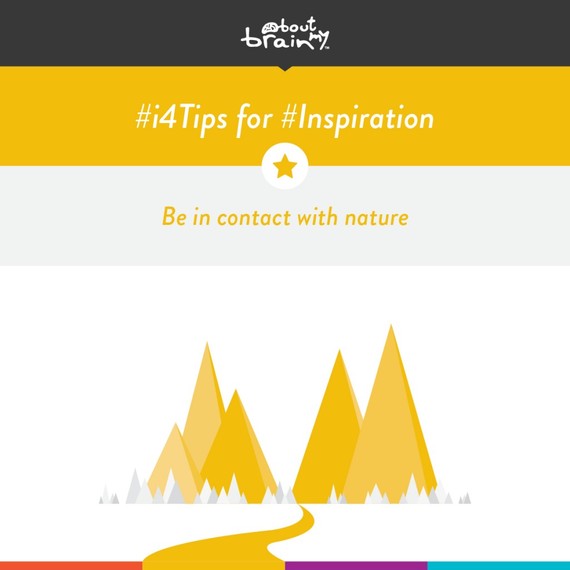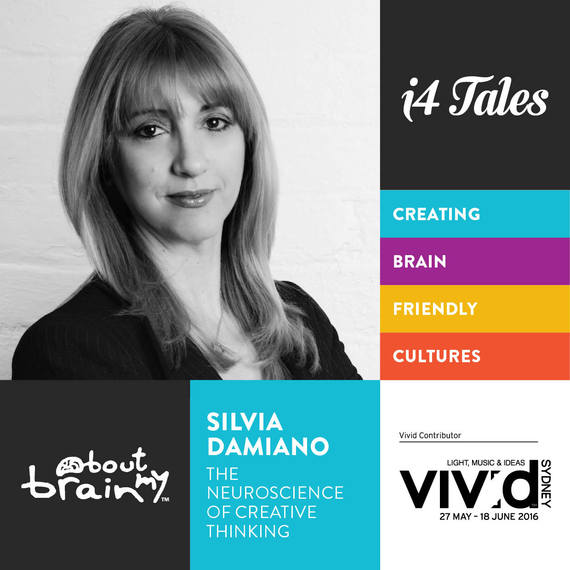It is only in recent times that neuroscientists are starting to unravel what happens when we create. We used to leave creativity in the hands of prodigies and talented artists, but now we know that it is something that anyone can do and nurture. Whilst there is no perfect model yet to explain the intricacies of the creative process, the three steps outlined below, offer some practical strategies into how to enhance our creative genius.
As we live in a society that's constantly evolving, learning how to stay at the top of our game, by creating and innovating - is becoming a highly valued skill. There's always someone out there looking to do what you're doing, but better.
You've got to go out-innovate the innovators!
Keeping the brain active, curious and continually learning can help connect different brain networks known to contribute to the creative process. It's time to kill the myth that only the right hemisphere of the brain is responsible for our creative insights and that creativity only exists to produce great artworks, buildings or original pieces.
1. Question Everything
Always ask: what could I do differently? Don't settle for the status quo, look for new knowledge. Stop your thinking and disrupt it. This will enhance innovative thinking and benefit the future prospects of your business, your team and your community.
2. Get in touch with nature
Connect with 'the green' by accessing sunlight, fresh air & touching nature when possible. Don't consign this to just the weekend walk or occasional camping trip. A fantastic example of this is the roof top garden at the Macquarie Bank building in Martin Place, Sydney, where employees now are able to interact with chickens, grow vegetables and take care of honey bees.
Slowing our brains and taking the time to mind wander can help our brains to find better solutions and strategies. Even if you don't have the chickens and bees, a walk at lunch time, a run in the park (and not the gym) or just sitting on a park bench will allow you mind to slow down and think of new possibilities, solutions and approaches.
3. Sleep on it!
Getting between 7 to 9 hours of sleep per night must become a non-negotiable. If you don't get this recharge, you'll sap your brain of energy, be less creative, harm interpersonal relationships and make increasingly bad decisions. This has a cumulative effect the longer sleep-deprivation goes on. Sleep must be as much of a priority as nutrition and exercise. Such is the sleep crisis in America, that Arianna Huffington has initiated the 'Sleep Revolution Tour' campaign throughout American University campuses. Arianna is on a crusade to re-educate students about the importance of sleep and disconnecting from technology to restore brain capability, performance and creativity.
Get into the ideas habit. Even if you feel uncertain or you fail repeatedly, get into the habit of producing ideas - independent of the outcome. The more you generate new ideas and concepts, the better you will get at mastering the process of preparation and incubation, until the 'eureka' moment emerges in your brain.
Join Silvia Damiano at the 2016 i4 Tales Conference
What most people know as the "eureka' moment, usually occurs when we fail to solve a problem and then the 'aha' or a sudden realisation of how to solve it emerges in our brains. Creativity has always been a fascinating topic of study and now that researchers can use machines to measure brain activity and identify 'how' and 'where' these 'aha' moments take place, the study of creativity is being taken to a new level.
In this i4 Tales session, you will learn from leadership expert Silvia Damiano about how the neuroscience of creativity can help us understand and develop mechanisms to foster divergent thinking so we can be more resourceful in solving problems at work and in life.
Book soon as we have limited spots!
www.aboutmybrain.com/i4tales


